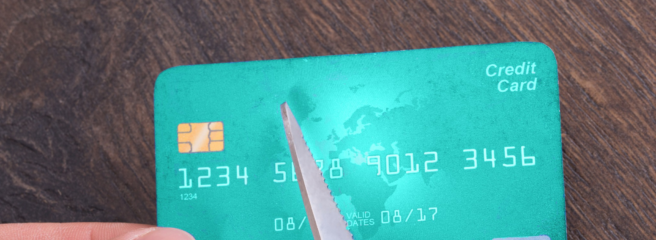
Key takeaways:
- It’s possible to refinance a personal loan. However, you’ll want to ensure the new loan’s terms are more favorable before replacing your original one.
- The main factors to look for when refinancing include getting a lower interest rate, lower monthly payments, and better terms–such as a shorter repayment term.
- Refinancing may not be a smart financial move, as you could come across higher interest rates, fees, and penalties.
Though it may sound counterintuitive, borrowing money to pay off debt can be a smart way to save money and repay high-interest debt quickly. Rather than taking on more debt, you’re replacing an expensive debt with one that’s more affordable.
This financial strategy known as refinancing can also help with a personal loan. Say you want a lower interest rate, to reduce your monthly payment, or change your repayment term. Refinancing a personal loan can save you a significant amount of money. But depending on your financial situation, it’s not always a viable option.
Here’s how you can refinance your personal loan and what to know before starting the process.
Can you refinance a personal loan?
Yes, it’s possible to refinance a personal loan. To refinance a personal loan, you typically need to apply for a new loan or line of credit to pay off your existing debt. You could refinance a personal loan with the same bank or lender, or choose a different one depending on who offers the most favorable rates and terms.
Once you’ve paid off the original loan in full, you’ll start making payments toward your new loan with different interest rates and terms. Ideally, your new loan should have a lower interest rate, fewer fees, and/or better repayment terms that can help you save money.
Refinancing takes time to research, compare quotes, and complete applications. If your loan is close to being paid off, refinancing may not be worth the hassle.
How to refinance a personal loan
Refinancing a personal loan is a similar process to applying for a loan. And knowing what to expect throughout the process can benefit you.
1. Check your financial standing
Before you make any big money moves, check the standing of your credit score. Your credit score should be at least as strong as when you first borrowed the money to assure you’ll get better new terms. For personal loan refinancing, a higher score is ideal to get you a lower interest rate.
Although, there are alternative lending options available that look beyond your credit score. Upstart’s model considers factors such as your education¹ and employment history so you don’t have to solely rely on your credit score alone.
If your credit score isn’t strong, try to improve your credit score and aim to reach a higher number before applying for a new loan. A good credit score will help you save the most money when refinancing a personal loan.
Some quick ways to boost your credit score may include reporting any errors on your credit report and getting them corrected, paying down high-interest credit card debt, and paying all your bills on time—this has the biggest impact on your score.
2. Shop around for the best rates and terms at lenders
When you inquire about refinancing your personal loan, compare quotes from numerous companies to see which one offers the most affordable borrowing options. Take into consideration the interest rates, repayment terms, and any fees or restrictions the lender might have on refinancing personal loans.
Pro tip: Consider shopping for personal loans through Upstart. Our model looks beyond your credit score to provide a rate for you. You can check your rate at any time and prequalify before you commit to a lender.
3. Submit a formal application
When you’ve decided on a lender, you’ll fill out a formal application to start the refinancing process. This may trigger a hard credit check, which will temporarily lower your score by a few points as your lender checks your credit report. You may need to submit the required documents, which may include tax returns or pay stubs.
4. Receive your funds
After approval, some lenders will fund loans as soon as the same or the next business day. Otherwise, the typical time frame to receive your funds is about 1 week. While you wait, make sure to keep up with payments on your old loan.
5. Pay off your original personal loan
Once the funds have been distributed, you can pay off your old personal loan by contacting the associated lender and following their instructions. Follow up with them to confirm your debt was paid in full and ask for documentation. That way, you won’t come across any additional fees.
Continue making payments toward the new loan and rework your monthly budget, taking into account your new loan terms and payments.
Pros of refinancing a personal loan
Refinancing a personal loan can be a great opportunity to hit your financial goals. Some pros may include:
- Lower interest rate. If you’ve increased your credit score or rates have dropped, you could save money with a lower annual percentage rate. Say you have $20,000 in credit card debt at 19% interest. If you’re offered a personal loan for the same amount at 11% interest, you could reduce your monthly payments by $89, which would save you $2,834 in total interest payments. Visit our loan calculator to use numbers unique to you.
- Payment stability. Switching from a variable rate to a fixed rate can provide better financial stability in your budget.
- Shorter repayment term. If you can afford to make higher monthly payments, you can refinance a personal loan to a shorter term. Paying off the loan faster means you’ll reduce the amount of interest you owe overall and can get out of debt sooner.
- Longer repayment terms. If you want to lower your monthly payments, you can refinance your loan to an extended repayment term. Doing so can make your debt more manageable.
Cons of refinancing a personal loan
Before deciding to refinance your personal loan, be aware there are some potential drawbacks:
- Higher interest rates. Lower monthly payments might help now, but they cost you in the long run. If you choose a longer repayment term when refinancing, you’ll be in debt longer and could end up paying more in interest over the life of your loan.
- Origination fees. Some lenders charge origination fees that can be as high as 10% of the loan amount. It’s important to make sure the amount you’ll get after the lender applies this fee is enough to fully refinance your loan.
- Prepayment penalties. When you pay off a loan balance before a term ends, you might face a prepayment penalty, which could reduce your potential savings. Check the terms of your current loan beforehand.
- Difficulty qualifying. It can be difficult to qualify for a new line of credit if you’re struggling financially and have a low credit score.
- Negatively impact your credit score. Refinancing counts as an inquiry for a new line of credit. When a lender runs a credit check, it could set your score back a few points.
Personal Loan Refinancing FAQs
There are many questions one might have about refinancing a personal loan. Consider the following in comparison to your situation.
When does it make sense to refinance a personal loan?
Refinancing a loan almost always makes sense if it’ll save you money. Consider these instances when refinancing your personal loan might be more favorable:
- Your credit score has increased.
- You’re looking to lower your payments.
- You prefer to pay off the loan faster.
- You want to switch from a varied interest rate to a fixed one.
- You want to avoid paying a balloon payment of a larger amount at the end of your term.
It’s important to also know scenarios when it doesn’t make sense to refinance a personal loan:
- You don’t qualify for better interest rates or terms.
- Fees or penalties outweigh your savings.
- You’re preparing to finance another purchase that could decrease your credit score.
If refinancing your personal loan doesn’t seem right for you at this point, it may be worth waiting, paying off the loan in full now, or looking into an alternative option—like a balance transfer credit card.
How many times can I refinance a personal loan?
There’s no limit to the number of times you can refinance a loan. However, your current lender might enforce a waiting period of around 6 months between when you close on a loan and open a new one. You’re always free to refinance with a different lender to avoid the waiting period.
If you decide to refinance multiple times, you’ll need to maintain a high credit score. Otherwise, too many inquiries on your credit report can raise a red flag to lenders and decrease your score. This can make it more difficult to get approval and more flexible terms.
There are instances where if you take out a personal loan to cover high-interest debt that your credit score could’ve increased. You can always continue to rate shop to refinance your personal loan to see if you qualify for a lower interest rate.
Does refinancing my loan hurt my credit?
Refinancing will impact your credit temporarily. Once you proceed with the loan process, the lender will implement a hard credit inquiry. This lowers your credit score by a few points. As you practice good financial habits and continue making on-time payments, it’ll bounce back fairly quickly.
Typically, lenders will first allow you to see if you prequalify with a soft inquiry, which doesn’t hurt your credit score.
Pro tip: It may be in your best interest to wait on refinancing your loan if you’re looking to buy a new car, house, or move into an apartment. A small hit to your score could risk your chances of getting approved for a larger purchase, as lenders will check your credit report.
Looking ahead to better finances
A personal loan refinance isn’t the best option for everyone. But it’s smart to look into refinancing your personal loan if there’s plenty of time before the payoff date.
Compare the pros and cons of refinancing to see how it can affect your current financial situation. Do your research and find a lender with the best terms–including lower interest rates and lower monthly payments–and watch out for possible fees or penalties. Think of ending one loan and starting a more favorable one like opening a door to better opportunities.
¹ Neither Upstart nor its bank partners have a minimum educational attainment requirement in order to be eligible for a loan.






 Won't affect your credit score¹
Won't affect your credit score¹